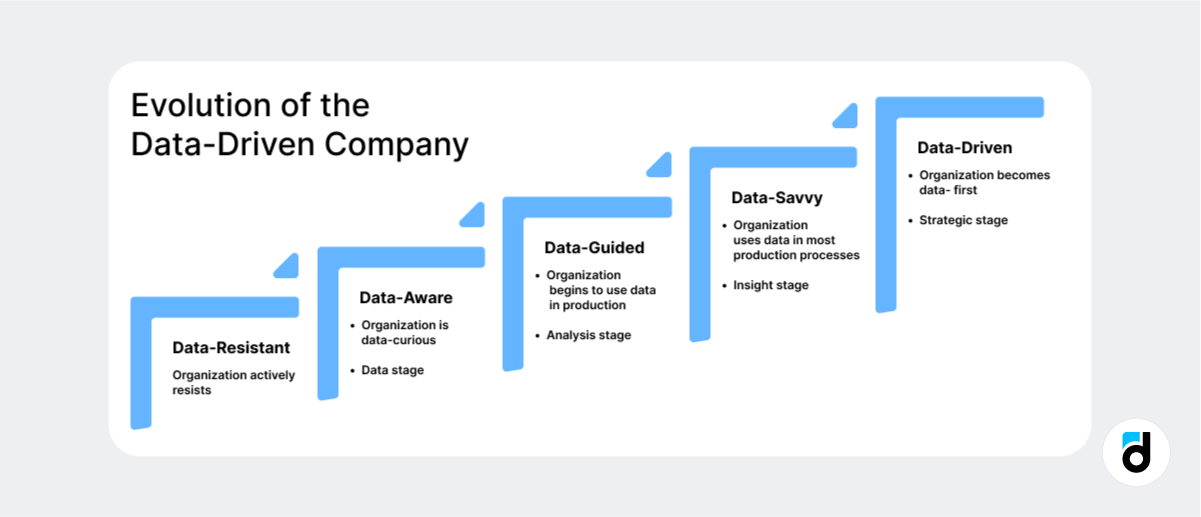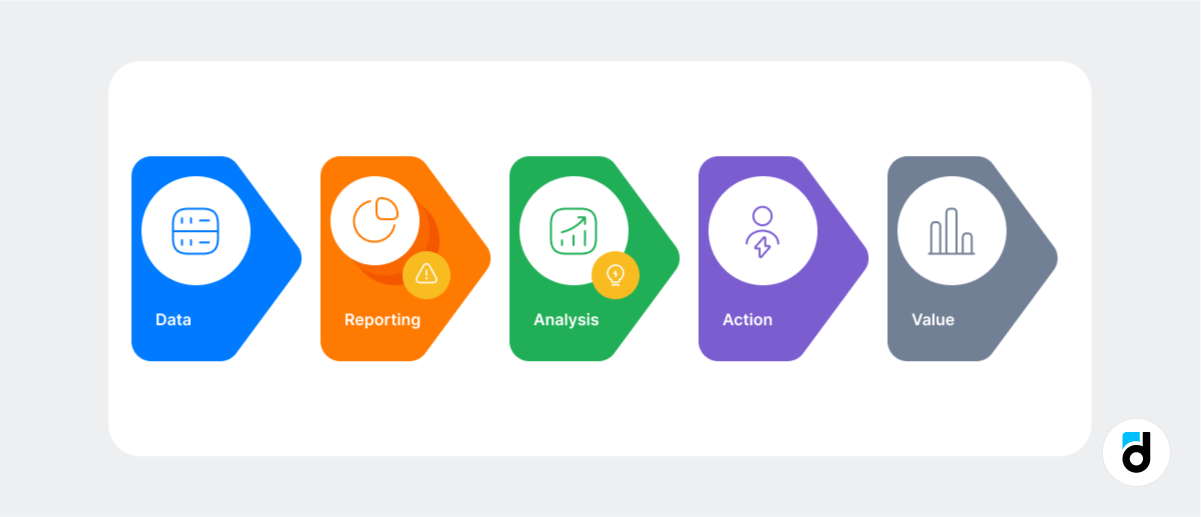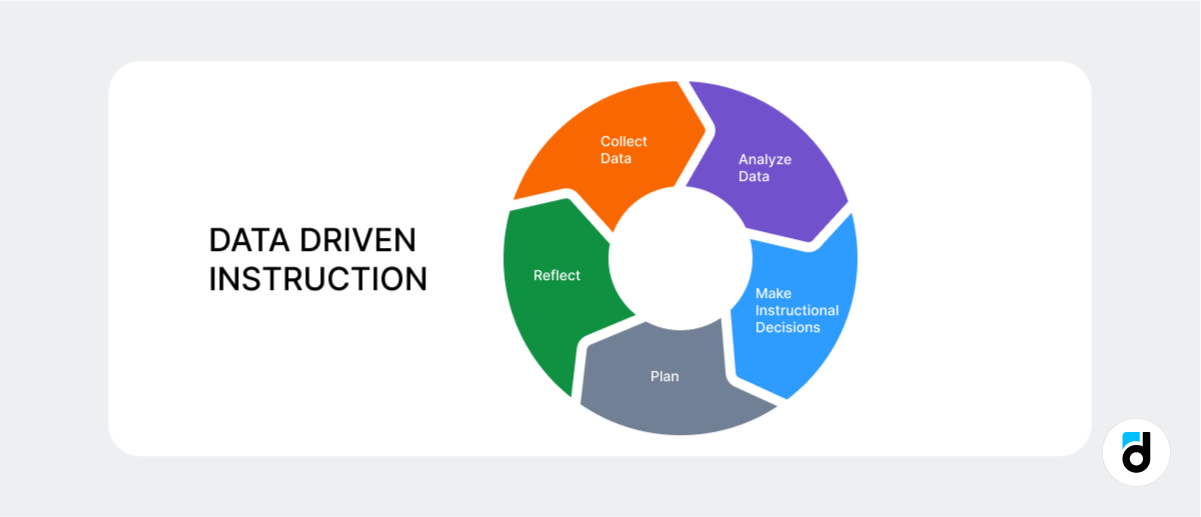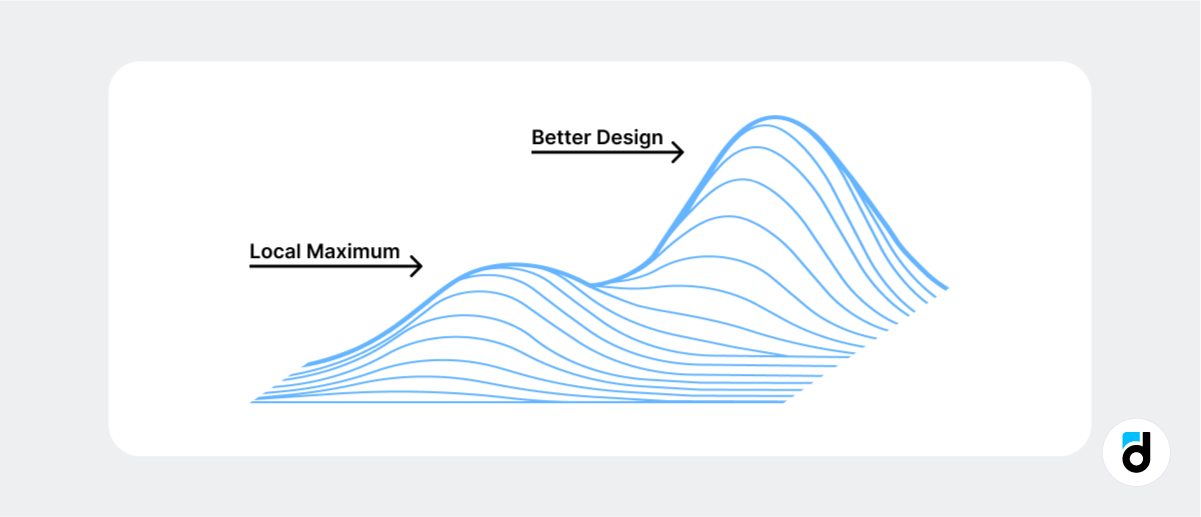In the age of information, data has emerged as the key driver of business success. It is the fuel that empowers companies to make informed decisions, gaining a significant competitive edge in the process. However, it is important to recognize that not all companies harness the potential of data in the same manner.
There are different types of companies in terms of the way they work with data. There are so-called data-resistant companies that intentionally act against data results. Then, there are data-aware companies that only partially take advantage of data. And the pinnacle of this chain is data-driven companies in which data is the key factor for decision making.

The data-driven approach embodies a management philosophy that relies on data analysis and interpretation to inform strategic decisions. In essence, decisions are grounded in concrete data rather than mere assumptions, subjective thoughts, or personal preferences.
Devtodev is the Best Platform for Data-Minded App and Game Developers. Check out our Demo, Advantages and Pricing
Let's conduct a thought experiment. Suppose a company generates numerous reports. Does this automatically classify it as data-driven? The answer is a resounding no. Firstly, the sheer existence of countless reports alone does not indicate data-driven practices. Secondly, we lack insight into how these reports impact decision-making.
If, for instance, last week's revenue declined and a report was produced on the matter, can we assert that the company is data-driven? In reality, the answer is no. While having a report is commendable, we remain unaware of whether it was actually read and understood by those involved in revenue changes.
Furthermore, the mere mention of revenue decline in the report does not automatically signify a data-driven approach, as it fails to address the underlying reasons for the decrease. The report does not delve into the specific metrics that were influenced, resulting in the revenue decline.
Read more: Top 12 User Engagement Metrics for Mobile Apps

To truly qualify as a data-driven company, foresight and predictive capabilities are crucial. Presently, we find ourselves receiving a weekly report stating that revenue has decreased at the beginning of the following week. This signifies a seven-day delay, suggesting that the report could have been generated earlier. Ideally, it should have been anticipated at least seven days ago or, better yet, predicted in advance. With this proactive approach, we could have taken measures such as promotional activities or events to avert the revenue decline. Only then can we confidently declare the company as truly data-driven.
Read more: Unlock Insights with Devtodev’s User Flow Report
Data-driven processes in a gaming company
Let's explore how data-driven processes shape the landscape of gaming companies and revolutionize game design and LiveOps strategies.
In game design, the data-driven approach entails a meticulous analysis of each feature before implementation. Market intelligence services provide valuable insights into market trends and competitor behavior, enabling informed decision-making. Additionally, monitoring the impact of specific features on performance indicators, including project revenue, allows for data-informed design choices.
Read more: Top 10 Youtube Channels for Level Designers
Prior to implementing a feature, careful evaluation and prediction are crucial. Questions arise: How profitable will the feature be? How will it impact key metrics over time? To ensure reliable results, a trustworthy interval must be estimated to determine the sufficiency or insufficiency of the feature's effects. Importantly, the analysis of implemented features should be documented and archived, serving as a foundation for future actions and decisions.
In the realm of LiveOps, a data-driven approach drives the planning and execution of promotions and events. Understanding the key metrics to rely on becomes paramount when devising successful promotional strategies. Before launching a promotion, it is crucial to have a clear understanding of the purpose behind it, whether it involves discounts or other types of promotions. This understanding allows for meticulous planning and accurate evaluation of the anticipated impact.
To ensure long-term success, careful consideration is given to the calculation of a promotion's effect. In free-to-play economies, where inflation poses significant long-term risks, it is essential to avoid scenarios where short-term gains from a promotion are followed by a substantial drop in revenue. Similar to the principles discussed earlier in feature analysis, each promotion and event can be viewed as a unique feature in itself. Consequently, a comprehensive analysis is conducted, and the findings are documented and archived for future reference and iterative improvements.
Read more: How to Apply Analytics at Every Stage of Product Development

When considering the broader context of the gaming industry, a data-driven culture emerges as a significant factor. Owners and decision-makers must possess data literacy, comprehending the nuances of data and embracing patience in awaiting results. A/B testing becomes a fundamental practice, ensuring that unknowns are explored, tested, and iteratively improved upon with each product iteration.
It is important to note that analytics within a data-driven culture surpasses the role of a mere SQL operator. Analysts play a proactive role, actively participating in decision-making processes. Their expertise contributes to meaningful discussions surrounding the future direction of the game, as insights derived from data analysis guide strategic decisions. By integrating the valuable perspective of analysts into the decision-making process, companies can leverage data-driven insights to optimize their products and drive overall success.
Read more: Top 10 Youtube Channels for Level Designers
Data-informed decision making
While the data-driven approach has been widely praised, it is essential to recognize that it is not the ultimate stage of utilizing data within a company's development. A new concept, known as "data-informed," has emerged, signifying a more holistic approach to decision-making.
The data-informed approach involves considering data as one of many factors influencing decisions. It is evident that decisions rely not only on data but also on intuition and expertise. It is crucial for a company to first establish a data-driven foundation before transitioning towards a data-informed approach. By understanding how data precisely influences their operations, organizations can strike a balance between data and subjective vision.
Read more: How to Create an Ideal Dashboard for Analyzing Mobile Games and Apps
What sets the data-driven and data-informed approaches apart?
The data-driven approach operates within the confines of a specific plane, continuously seeking the local maximum based on available data. While this iterative process yields valuable results, it can limit the ability to explore new horizons and uncover points of higher potential.
To navigate beyond the current plane and gain a visionary perspective, the owner's opinion and decision-making play a vital role. The data-informed approach integrates this valuable resource alongside data, enabling organizations to explore neighboring hills and identify new points of higher maximums. Once these new points are identified, the data-driven approach can then optimize towards the peak of the second hill.
Read more: CEO’s Guide to devtodev Metrics

Comparing the data-informed and data-driven approaches, it becomes apparent that the data-driven approach is ideal for optimization tasks, while the data-informed approach is suited for tasks that involve navigating beyond the current landscape. When the data-driven approach reaches its limitations, the data-informed approach provides an avenue to adapt project structures and logic, allowing organizations to explore neighboring hills and unlock untapped potential.
By transitioning from a data-driven to a data-informed mindset, companies gain a more comprehensive understanding of their data's role in decision-making. Embracing both data-driven optimization and the visionary insights of decision-makers, organizations can chart new paths, uncover hidden opportunities, and drive their business towards sustained growth and innovation.

